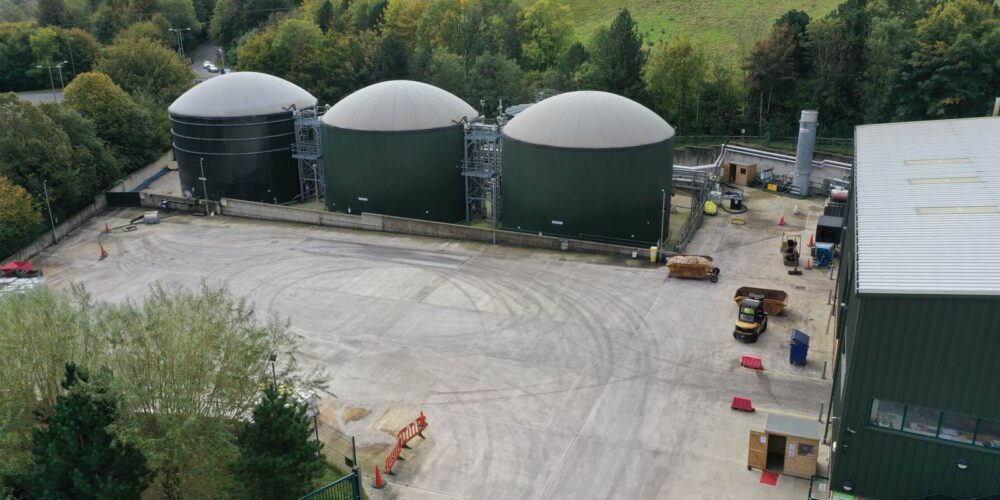With a continued period of economic and political uncertainty and a lack of top down decision making, this commentary piece gives an informed perspective of the biogas industry now and shines a light on its potential.
Some players in the investment community will be of the opinion that the performance of the AD industry has been underwhelming thus far and this seems to include sections of the government departments. In both cases the holders of purse strings need to take stock of the growth of the industry and the long road to decarbonisation. Given the low ebb it started from I think that, looking at it in the round, the FIT & RHI schemes were successful in doing what they intended – stimulating investment into a new sector and delivering growth. Returns will always need to be good enough for capital to be redirected from standard investment and back in the late noughties and early teens the prospects of restoring pre-crash returns were very unlikely. It’s the sharp end of risk vs reward.
It is frequently forgotten that both schemes are output based so income only comes from performance – the generation of power and the utilisation of heat. Capex get you to the start line. In the case of FITs the focus on output differs from the blunt capacity based FIT structure in Germany pre 2012. I have seen a number of German farmers not worry about process efficiency ‘ … because I get paid anyway’. On the RHI side (especially CHP heat but also early-doors biomethane) the eligibility rules were such that the Northern Irish abuse and the ‘finessing’ of heat use for marginal gain on some agricultural plants delivered bad press. Notwithstanding these grim tales the schemes have delivered an industry and, to my mind more importantly, significant decarbonisation.
I think the industry has been plagued by a perfect storm of external factors but the good ship AD is building steam and, with fairer winds, it is well set for improving performance and growth.
Political turmoil
So many governments & changes in departmental staffing & priorities, the referendum & the distraction of Brexit all combine to move the focus away from consistent & long-term policy decision making.
The resurgence of the climate emergency imperative should help calm the waters. Uncertainty is the new normal & industry experience should now inform decision makers. Recent ADBA testimony to the EFRA Sub Committee & the REA’s Bioenergy Strategy help build credibility & inform the powers that be. They just need to act. Building public confidence & pressure will help.
Economic Austerity
Many will agree that despite talk of economic recovery & growth the fall out of the Financial Crisis looms large. The Coalition Government kick started our industry renewables & decarbonisation offered existential ‘opportunity’ to build a new focus from the ashes. Sadly political memory is short & the public bail out of banks did not change City habits & the ‘gold rush’ of AD development was fuelled by opportunists & snake oil salesmen as well as innovators & visionaries. George Osborne’s belt tightening saw restrictive rules on heat utilisation & the removal of expansion possibilities for successful plants & Ofgem’s removal of LECs & changing of Triad rules all combined to force plants to cut their cloth. Finally Eric Pickles’ lack of a unified English waste policy led plants to cannibalistic tendencies of a race to the bottom as feedstock never came through the system. The ‘support’
element of building a new industry was lost & opinion hardened turning on ‘fat cats milking the subsidy gravy train’ (excuse the mixed metaphors).
The lessons learned in fast growth & tightening belts is that consistent operations, adaptability & a long-term view are important. Understanding & maintaining assets (including staff, knowledge & experience) are critical as is good communications within the organisation, the industry & externally to policy & opinion makers also help.
Early Industry Naivety
Short-termism & opportunism always show themselves in new sectors as technology providers & developers pursuing new business convince investors chasing pound signs that they can deliver ‘big bangs for big bucks’. Fly-by-nights form mature European markets saw a new, burgeoning & lucrative market. They came, got paid & went. Funders were slow to apply technical due diligence as expertise was short on the ground & the qualification of new AD for EIS funding meant private equity houses were setting themselves up for the usual pass-the-parcel of assets so loved by Mr Ponzi. Shades of 2007? If someone somewhere pays too much then at some point there is a collapse. New kit does not necessarily mean bigger profits. Meanwhile on the operational side we saw a number of unrealistic budgets being put forward & approved by investors (no digestate cost allocations, one person staffing costs & no consideration for compliance & regulations). All these feeds into difficult times when the income is squeezed, the costs increase & tempers get frayed.
Fortunately, the worst of these days are behind us & the maturity of experience means that the industry is now realising that best practice, responsible operations, realistic & long-term investment & good communications help build reputation & encourage support. Being the only game in town to deliver at scale should allow policy makers to see the value of support in whatever shape it comes.
Head in the Sand attitudes to climate change
The recent evangelising of climate change is very welcome but stark warnings need to be followed by drastic action. Are we seeing the start of this? I’m not sure as the shadow of Brexit, Trump & NIMBYism all loom large & I’m not sure things are yet bad enough to change human nature. There are some chinks of light with the Resources & Waste Strategy, Climate Emergency declarations & the knocking of heads done by Saint Attenborough. But, and I think it is still a big but, I remain to be convinced that any shade of government at Christmas will deliver the presents we need.
We need ambition & leadership
Each seismic shift in the global economy has come with technological innovation: Industrial Revolution; the New Deal after the Great Depression; the Space Race & the rise of factory production after WW2; The IT Revolution & the Internet Boom. All were supported by a need for change, bold missions & supportive funding to promote new investment. Now we most definitely have the need for change (economic, political & environmental) & there is an emerging bold mission (global decarbonisation, The Green New Deal in USA, Climate Emergency declarations). Now we need commitment & leadership to deliver. Some currently deliverable technologies are simpler than others (wind & solar vs AD, tidal power, gasification, etc); some are blindingly obvious (trees are cheaper & less resource intensive that yet-to-be-invented carbon capture & storage machines) & some will take time to deliver at scale (the hydrogen economy, bioplastics etc).
All that is needed now is for those in power & influence to see the vision & support the solutions. We know AD is deliverable, flexible, scalable & available now. From small beginnings we have grown in very tough times and shown what we can achieve. If only the leaders would lead & the decision makers would support us we could (help) save the world.




